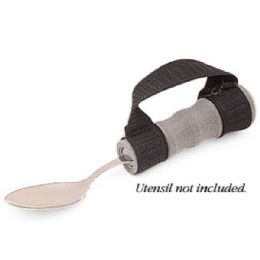
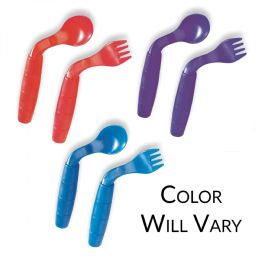
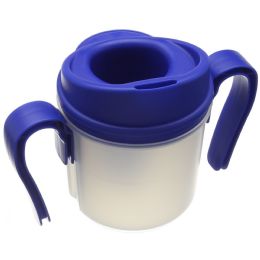
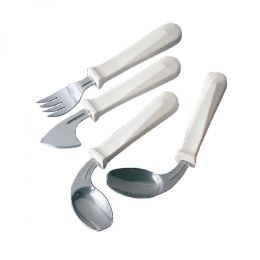
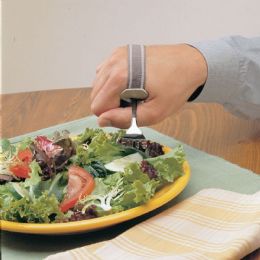
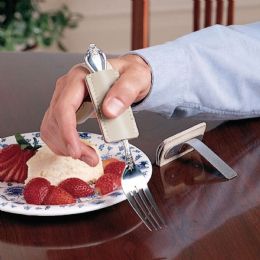
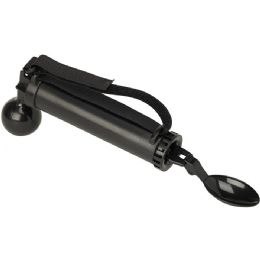
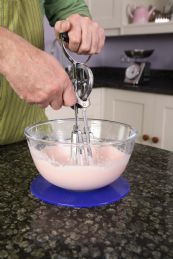
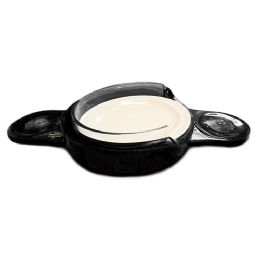
A child with a disability or handicap may have problems with feeding themselves for many different reasons, such as cerebral palsy, meningitis, encephalopathy, or autism. It may take longer for a child with a disability to be able to feed themselves, but developing the skills to do so can help them in other ways. These ways include improved speech and language development, and enhanced co-ordination.
Pediatric eating aids help kids to be more independent at meal times. They encompass utensils and adaptive eating equipment that can make dining more enjoyable and less work at home, school, or in a healthcare setting. Eating aids are typically used for those with disabilities, but have also been used for kids that have low dexterity. Besides promoting independence during meal times, they can also make life easier for the caregiver during meals, as well. Bowls and plates can have built up edges to help capture food on the utensil, and utensils are easier to grasp and reach the mouth by having special handles. Pediatric eating aids can increase self-esteem that is associated with increased independence, increase self-care, increase safety during meals, and make meal time simpler for the caregiver or parent.
Adapted bowls, plates, plate guards, and other dinnerware can help solve eating problems for the disabled or handicapped child. These devices will help to keep the food from falling off or out of the container and the container will not slide around. Some of these devices can be as simple as a clip-on guard that attaches to any normal bowl or plate. Many plates can have a lip, or rim, on the edge to help prevent food from coming off of the plate, enabling the food to catch on the utensil better. Other dinnerware aids are specially made or modified so they do not slide around on the table. Mats and grip bottoms are two common ways to keep the bowls and plates on the table. But, if the person has tremors, then dinnerware with suction bases may be needed. There are special plates and bowls that have a suction base that will attach to the table, which helps to prevent the dinnerware from getting knocked around when the container or table is bumped.
Adaptive dinner flatware and utensils can help those with physical disabilities, poor fine motor skills, grasping difficulties, tremors, or arthritis. Adapted spoons, forks, and knives can improve the eating experience with their large, angled, bendable, weighted, and built up handles. Weighted utensils can minimize tremors, but there are also attachments that can adapt the current utensil into an assistive device. These attachments can include something that may be large or made out of foam to enhance the grip and prevent the utensil from falling out of the hand, or something to slip over the handle that is weighted. If the individual is unable to hold the handle at all, clips and straps can also be utilized that fit the utensil to the hand. An occupational therapist can help to advise about eating aids that may help a child.
Rehabmart is pleased to carry a wide variety of pediatric eating aids from top quality vendors that include North Coast, Enabling Devices, Sammons Preston, Bionix Medical Technologies, Danmar and Southpaw Enterprises.
Hulet Smith, OT
Rehabmart Co-Founder & CEO
lb